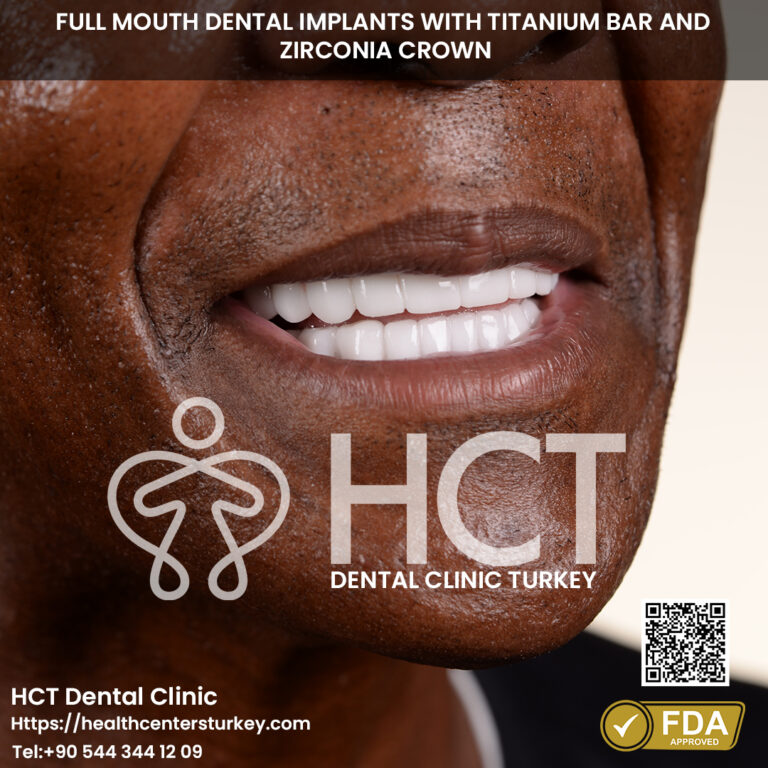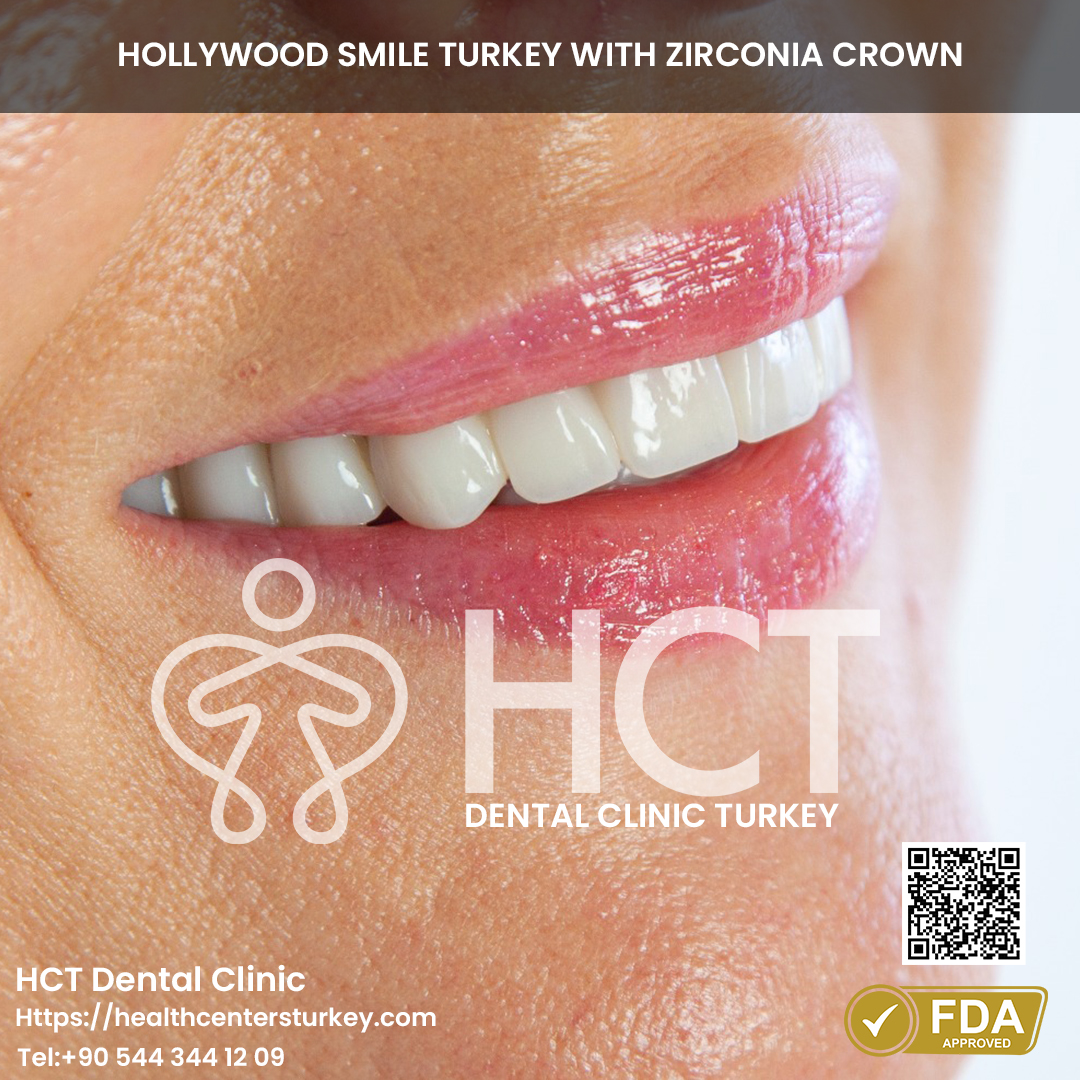What to Expect from Dental Procedures in Turkey

Dental implants have turn into a focal point in trendy dentistry, offering a dependable solution for these going through tooth loss. Among the a quantity of advantages they provide, one significant facet price considering is their impression on adjacent teeth. Understanding how dental implants affect surrounding teeth aids in making knowledgeable decisions about oral health.
When a tooth is lost, neighboring teeth can simply shift toward the area left behind. This motion can lead to misalignment, which compromises the general chunk and function of the mouth. Dental implants mimic natural tooth roots, thereby sustaining the place of adjacent teeth.
Outstanding Teeth Services Accessible to International Patients in Turkey
The stability provided by an implant is essential, because it helps in preserving not just the bodily alignment but additionally the structural integrity of the jawbone. When a tooth is missing, the underlying bone can start to deteriorate as a end result of lack of stimulation. An implant exerts strain on the bone throughout chewing, much like a natural tooth, which promotes bone health.
In some cases, a bridge or partial denture may be thought of as an alternative to implants. While these options might restore some performance, they can place extra stress on neighboring teeth. Bridges normally require submitting down the encompassing teeth to accommodate the anchors, thereby affecting their health over time. Dental implants, however, don't alter existing teeth, making them a more conservative selection.
Key Insights on Dental Procedures in Turkey
Hygiene becomes one other important issue when considering adjacent teeth in the context of implants. With dental implants, the individual can keep an everyday hygiene routine similar to natural teeth. Flossing and brushing around the implant are simple, making certain that the gum tissue stays wholesome and minimizing the chance of gum disease that might adversely affect adjacent teeth.
Moreover, the materials used in dental implants are biocompatible. This means they are designed to integrate well with the body, reducing the chances of an adverse reaction. This attribute not only makes the implant safe but in addition protects nearby teeth from potential issues that would come up as a end result of contamination or infection.
In terms of aesthetics, dental implants provide a natural feel and appear, closely resembling authentic teeth. Adjacent teeth benefit from this aesthetic enchantment as nicely. When an implant is positioned, the encompassing gum tissue may be shaped to imitate natural contours, thereby enhancing the general appearance of the smile. This aesthetic issue can encourage people to spend money on their oral care routines, benefiting each the implants and adjacent teeth in the long term.
Extensive Oral Care for A Radiant Smile
Another concern is the potential for gum disease, which can affect the health of adjacent teeth. Gum disease can happen when plaque builds up round teeth and implants. Regular dental visits and acceptable oral hygiene can mitigate this concern. The presence of implants can even function a that site motivator for higher dental hygiene practices, as individuals turn out to be extra acutely aware of maintaining their overall mouth health.
Studies have shown that dental implants can contribute to a significant enchancment in quality of life. Patients typically experience increased confidence and are less hesitant to smile or engage in social interactions. A wholesome and well-maintained smile not directly promotes higher look after adjacent teeth, as individuals are likely to become extra conscious of their general oral hygiene.
One often-overlooked aspect is the psychological impact of dental implants on sufferers. Knowing that implants supply long-term solutions can ease the anxiousness related to tooth loss. With fewer worries about future tooth shifts, patients usually tend to make investments effort and time into caring for their teeth, which includes adjacent teeth.
In conclusion, dental implants serve as greater than just a solution for missing teeth; they play a pivotal function in maintaining the health and integrity of adjacent teeth. From stopping misalignment to promoting gum health and enhancing aesthetics, the benefits are manifold. By choosing implants, individuals can't only restore performance but in addition foster a more healthy oral surroundings for surrounding teeth. The psychological and aesthetic advantages additional contribute to an overall enhanced quality of life.
Explore Dental Package Deals in Turkey
In the long run, understanding how dental implants have an effect on adjacent teeth can information individuals in making empowered decisions regarding their dental health. The integration of those implants into the mouth acts as a stabilizing force, safeguarding both the physical alignment and performance of neighboring teeth, whereas selling a long-lasting, healthy smile.
- Dental implants usually don't exert pressure on adjacent teeth, sustaining their integrity and reducing the danger of shifting or misalignment.
- The placement of an implant often encourages better oral hygiene habits, positively influencing the health of adjacent teeth by way of improved cleaning practices.
Remarkable Results from Dental Treatments in Turkey
- In some cases, dental implants can stimulate the encompassing bone, which helps protect the natural teeth's position and total dental structure.

- The hole left by missing teeth can result in bone loss; dental implants can prevent this, thereby protecting adjacent teeth from potential issues.
- Remarkable Dental Care Experiences for Travelers
Transform One's Teeth Appearance through Innovative Dental Solutions
- By restoring the perform of a missing tooth, implants help distribute chunk forces evenly, decreasing wear and stress on neighboring teeth.

- Properly placed dental implants can act as a help structure, preventing unwanted movement of adjacent teeth resulting from tooth loss.
- The presence of an implant may enhance the aesthetic appearance of surrounding teeth by filling in gaps and supporting facial structure.
Explore Cost-effective Dental Care in Turkey
- Dental implants get rid of the need for adjacent teeth alteration, in contrast to bridges, which require reshaping the nearby teeth for support.
- Implants also reduce the risk of gum disease in comparison with other tooth replacement options, indirectly benefiting adjacent teeth by selling total oral health.
Complete Dental Packages Featuring Implants.
- Long-term success of dental implants is linked to the health of surrounding teeth, emphasizing the importance of regular dental check-ups content and maintenance.
How do dental implants affect adjacent teeth?
Explore Services Available for Tooth Replacement Solutions
What are dental implants and the way do they work with adjacent teeth?undefinedDental implants are artificial tooth roots placed into the jawbone to help replacement teeth. They don’t affect adjacent teeth directly, as they're impartial buildings. Instead, they might help maintain the integrity of surrounding teeth by preventing bone loss.
Can dental implants trigger injury to adjacent teeth?undefinedIf placed correctly, dental implants mustn't hurt adjacent teeth. However, improper placement can lead to issues like misalignment or pressure, emphasizing the significance of choosing an experienced dental skilled.
Will dental implants promote bone development around adjacent teeth?undefinedYes, dental implants help stimulate the jawbone, which might encourage bone progress. This can benefit adjacent teeth by sustaining bone density and stability within the area.
Economical Dental Services with Quality Assurance
Should I worry about gum disease affecting adjacent teeth after getting an implant?undefinedGood oral hygiene is crucial after getting an implant. Gum disease can nonetheless have an result on adjacent teeth, but a correctly maintained implant doesn't improve that risk. Regular dental visits can help monitor and preserve gum health.
What occurs to adjacent teeth if I lose a dental implant?undefinedIf a dental implant fails or is lost, adjacent teeth could shift due to changes in chunk alignment and help structure. This could result in misalignment or additional tooth loss if not addressed.
Are there any particular care requirements for adjacent teeth after getting implants?undefinedMaintaining good oral hygiene practices, including common brushing, flossing, and dental check-ups, is essential for each dental implants and adjacent teeth to prevent decay and gum disease.
Highly Rated Dental Treatments for Local Patients in Turkey
Do dental implants help assist adjacent teeth when chewing?undefinedAbsolutely. Implants can enhance overall chunk perform, which can alleviate stress on adjacent teeth throughout chewing. This can lead to higher distribution of forces, promoting oral health.
How can I prevent issues with adjacent teeth and implants?undefinedConsistent dental care, including skilled cleanings and examinations, regular brushing and flossing, and following your dentist’s aftercare directions, are key to preventing issues.
Can adjacent teeth move if I have a dental implant?undefinedAdjacent teeth might transfer if they are not well-supported, especially after tooth loss. A dental implant helps keep the structure, reducing the chance of shifting teeth.